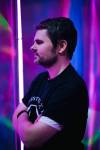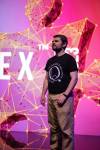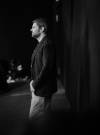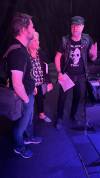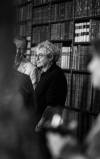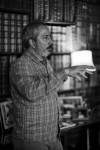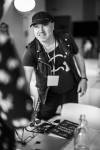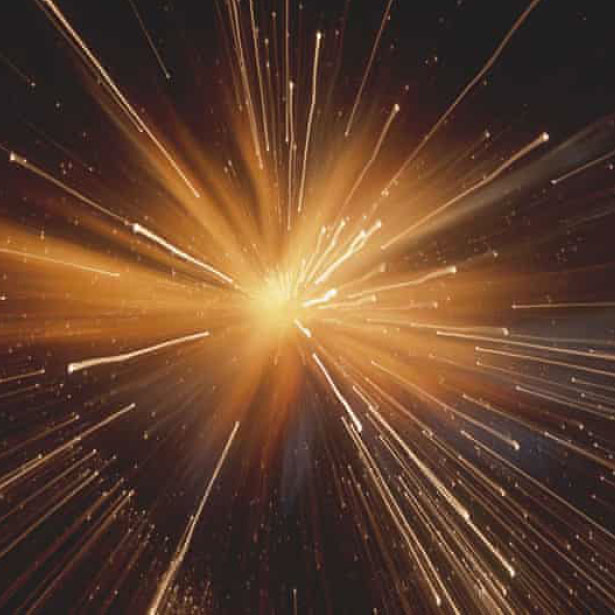
Achievements
Testimonials
Foundational Themes
since 2006, the foundational Questions institute has funded groundbreaking and award-winning research across a variety of topics, crossing multiple disciplinary boundaries.
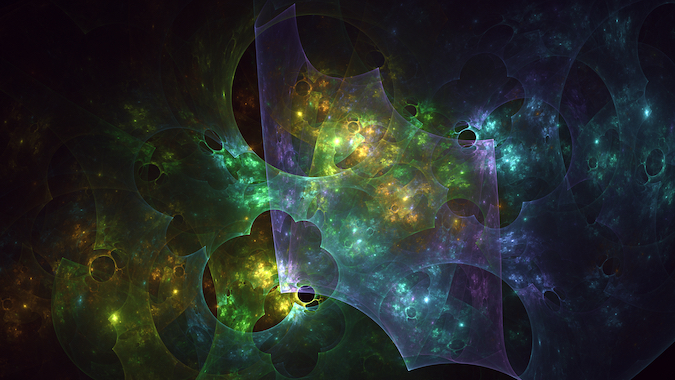
Cosmos

Physics of Information
arrow
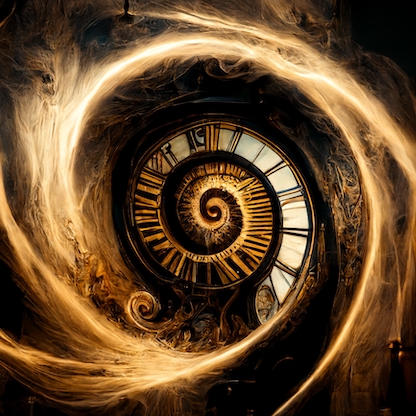
Time
arrow
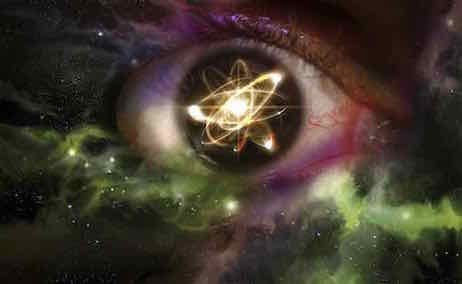
Physics of the Observer
arrow

Quantum Reality
arrow
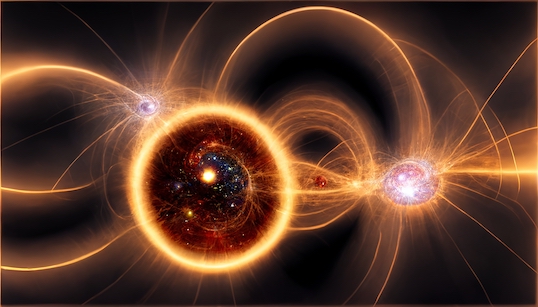
Foundations
arrow

Consciousness
arrow

Black Holes
arrow

Information as Fuel
arrow

Information as Fuel
The eighteenth century saw the development of the steam engine and the industrial revolution, built on advances in thermodynamics—the science of heat and energy transfer. The twentieth century saw the discovery of new laws that govern the microscopic realm, quantum mechanics. That led to the invention of the transistor and, in turn, today’s digital revolution. Now, as devices get smaller, we are on the brink of a “quantum thermodynamic revolution.”
FQxI’s researchers have been investigating how the laws of thermodynamics need to be modified when describing the workings of nanomachines, due to quantum effects. Can quantum properties be harnessed to boost their performance?
- Jonathan Oppenheim and colleagues published a paper on the second laws of quantum thermodynamics in the Proceedings of the National Academy of Sciences.
- The work of Natalia Ares and Markus Huber on the thermodynamics of clocks and the relationship between entropy and the arrow of time was featured in New Scientist and many other outlets.

Black Holes
While the event horizon telescope team has taken us to the edge of a black hole in recent years, with their groundbreaking images, FQxI’s physicists have raised new paradoxes about these cosmic behemoths.
In the 1970s, Stephen Hawking puzzled over the fate of information that falls into a black hole: does it disappear from the universe forever? A decade ago, FQxI physicists added a new conundrum: what happens to an astronaut unlucky enough to fall into a black hole? Would they inevitably be dragged to its center—slowly being stretched or ‘spaghettified’? Or would they be burnt to a crisp when they hit the black hole’s edge, or event horizon? The answer has profound repercussions for our understanding of general relativity and quantum theory.
- FQxI researchers investigating the black hole information paradox and the black hole firewall paradox, as the new conundrum became known, have been awarded multiple major prizes, in part, for recognition of this work; Andrew Strominger and the late Joe Polchinski won a share the $3 million Breakthrough prize in fundamental physics in 2017.
- FQxI-funded research on black holes has been covered by the New York Times and on the BBC, amongst others.
Image: The Event Horizon Telescope Collaboration

Consciousness
How did consciousness emerge in the physical world?
FQxI’s researchers are exploring the evolution of agency, intelligence and consciousness through physical processes, combining ideas from psychology, neuroscience, biology and information theory.
- Max Tegmark has proposed that consciousness is a state of matter, as discussed in the New York Times.
- Chiara Marletto is involved with various research projects, with Sara Imari Walker and Vlatko Vedral, related to a radical new framework of physics called “Constructor Theory” developed by David Deutsch. Her work suggests that it has implications for the evolution of life and intelligence, and she has been interviewed about her book on the subject, The Science of Can and Can’t, in the Guardian.
- Carlo Rovelli’s work relates agency, causality and information processing, as he told the Financial Times

Foundations
What is fundamental? What is emergent?
FQxI’s researchers have investigated whether there are building blocks or ‘atoms’ of space and time.
- Mark Van Raamsdonk examined the possibility that spacetime emerged from quantum entanglement, earning him the 2014 Canadian Association of Physicists Medal in Mathematical and Theoretical Physics and the 2015 Simons Investigator Award. His work was popularised in Nature, and these ideas have been built on by FQxI’s Leonard Susskind, Juan Maldecena and Adam Brown, who have related entanglement to wormholes.
- Carlo Rovelli and independently Rodolfo Gambini and Jorge Pullin have explored ideas from loop quantum gravity that suggest that spacetime is woven from threads of geometry. Such theories could have detectable signatures, found by viewing black holes, as reported by New Scientist.

Physics of the Observer
What is the role of the observer in physics?
Who is an observer in physics?
- Renato Renner and Lídia del Rio have investigated the role of the observer or agent in different interpretations of quantum theory. With Daniel Frauchiger, Renner developed a thought experiment in which a new paradox arises when quantum observers are themselves observed and analyzed as quantum systems—as reported in Nature.
- Chanda Prescod-Weinstein’s introduction of an intersectional framework for postcolonial community building in astronomy, spun out into a multi-award-winning popular physics book The Disordered Cosmos.

Physics of Information
What actually is information? FQxI’s researchers have tackled this issue from the perspectives of mathematics, physics, philosophy and computer science, with particular implications for the growing field of quantum computing.
The physics of information processing reaches beyond physics and a number of our grant winners have succeeded in applying established principles in new, and unexpected, ways. Information theory can help us discover how the brain analyses data about the environment, and may aid in defining what differentiates living entities from material objects. Aspects of quantum information could even be useful in social science, economics and politics, according to some of our FQxI grant winners, across multiple grant rounds.

Quantum Reality
What is fundamental? What is really real? How does the fuzzy quantum microrealm of possibilities transition to the everyday classical world we see around us? Is there a limit to the quantum realm?
FQxI’s reasearchers have developed experiments and theory to explore the boundaries of quantum physics.
- Tests by Paul Kwiat and colleagues, and other independent groups, helped to establish that quantum entanglement—in which the properties of two objects become inextricably linked, no matter how far they are separated—is a real phenomenon, by closing loopholes in earlier experiments. Such research has implications for creating truly secure communication, using quantum cryptography, as reported in Science.
- Nobel Laureate Anton Zeilinger, Markus Aspelmeyer and colleagues tested whether entanglement can persist between small, but macroscopic objects. Zeilinger was awarded the Nobel prize in physics in 2022 for his earlier work on entanglement.

Time
“What is time then? If nobody asks me, I know; but if I were desirous to explain it to one that should ask me, plainly I do not know.” — Saint Augustine.
Is time real or an illusion? Why does time’s arrow point in one direction: from womb to tomb? Is the future already set? Can we build a time machine? Can events in the future influence the past? Does time flow? Why is the conception of time in general relativity different from that in quantum theory?
Puzzles about the nature of time are ancient and developments in physics since the twentieth century have only served to deepen the mysteries. FQxI’s researchers have tackled many of these questions:
- FQxI ran a dedicated grant round to investigate the nature of time in 2010 and devoted its third international conference in Scandinavia to the topic, as reported on the BBC.
- The Centre for Existential Risk at the University of Cambridge, UK, was founded following discussion at the Scandanivanian conference on time, as described in the New York Times.
- Craig Callender was jointly awarded the 2018 Lakatos Award for his book What Makes Time Special?
- Julian Barbour’s FQxI-funded research into the possibility of a mirror universe in which time runs backwards, was covered by multiple outlets, including The Telegraph, The Independent and The Daily Mail.
- Read more in FQxI’s review on the nature of time.

Cosmos
How did the universe begin? What will be its ultimate fate? Is our cosmos one of many in a multiverse of parallel universes?
FQxI’s researchers have investigated the origins of our universe, the possibility of finding evidence for a multiverse, and alternative cosmologies and their testable predictions.
- Alan Guth and Andrei Linde were among the nine inaugural Breakthrough prize laureates, announced in 2012 and reported in Scientific American. They were recognised for their early work on inflation theory, which posits that the infant universe went through a short burst of rapid expansion. With their FQxI grants, they have since explored the possibility that inflation predicts the existence of a multivese.
- Hiranya Peiris and colleagues have searched for imprints of other bubble universes, in a larger multiverse, left on our sky, as reported by the BBC.
- Raphael Bousso, Alex Vilenkin, Guth, Linde and others have explored an unwanted prediction of multiverse theory that suggests that intelligence is more likely to pop-up suddenly as a fully-formed “Boltzmann brain” floating in space, than to have evolved as part of a universe such as ours. The bizarre idea was covered by the New York Times.
- Read more about our cosmic origins in FQxI’s in-depth report.

The foundational questions institute in numbers
Founded 2006
US$29 million AWARDED in Grants
10 major research funding rounds and 28 Mini-grant rounds
6 International Conferences
OVER 350 Members
4 Nobel LaureaTEs
Over 10 FUNDING THEMES








































































































